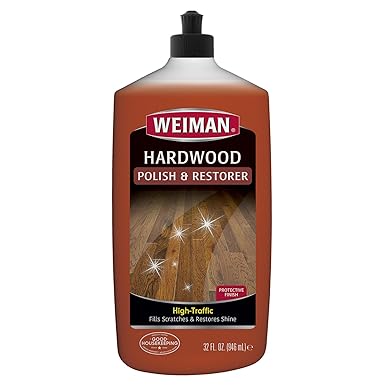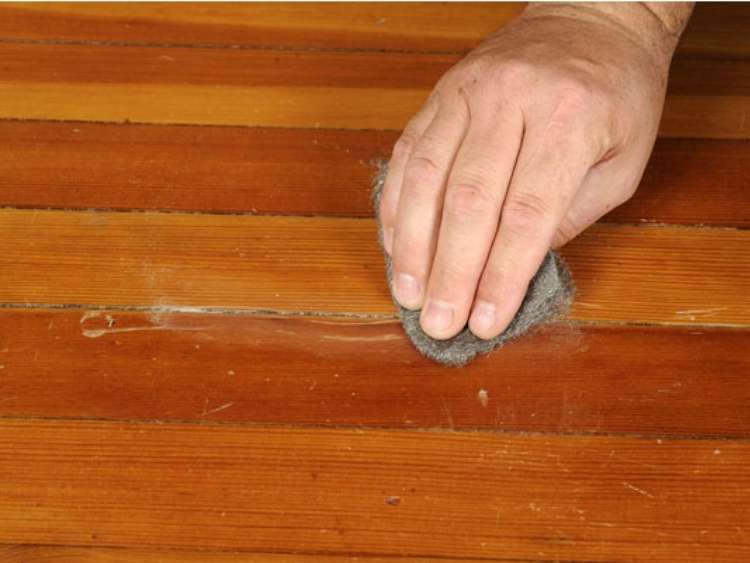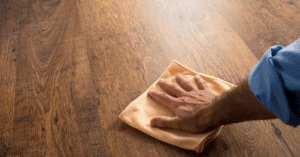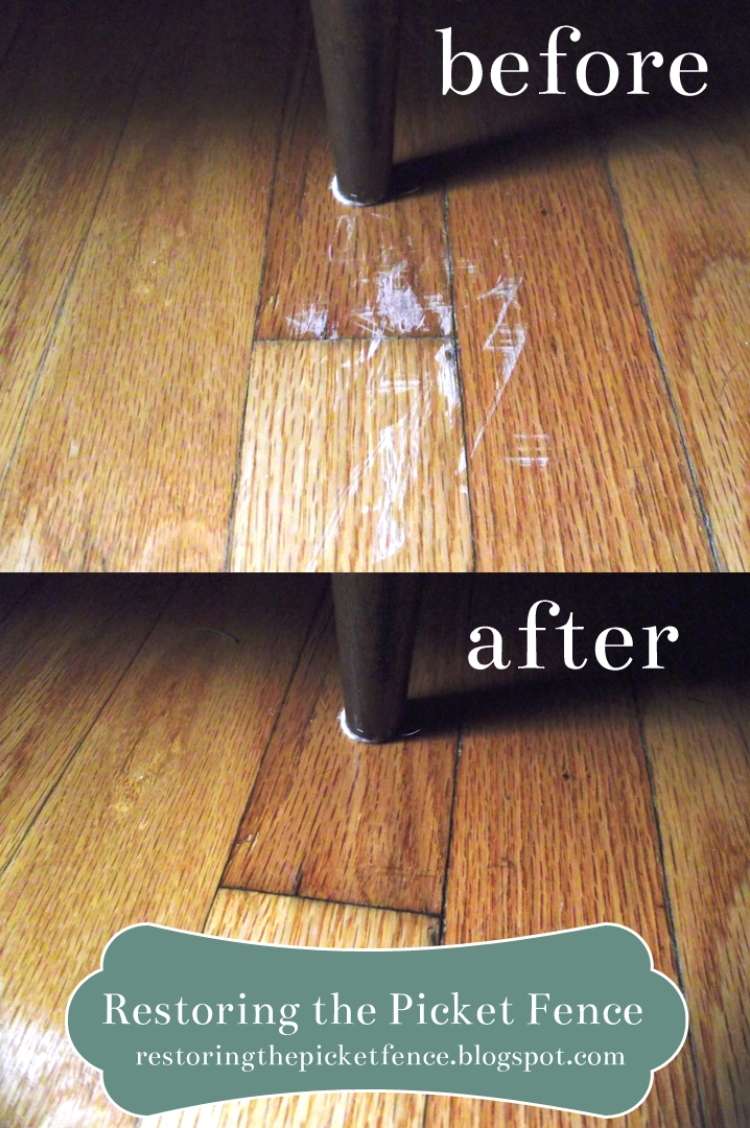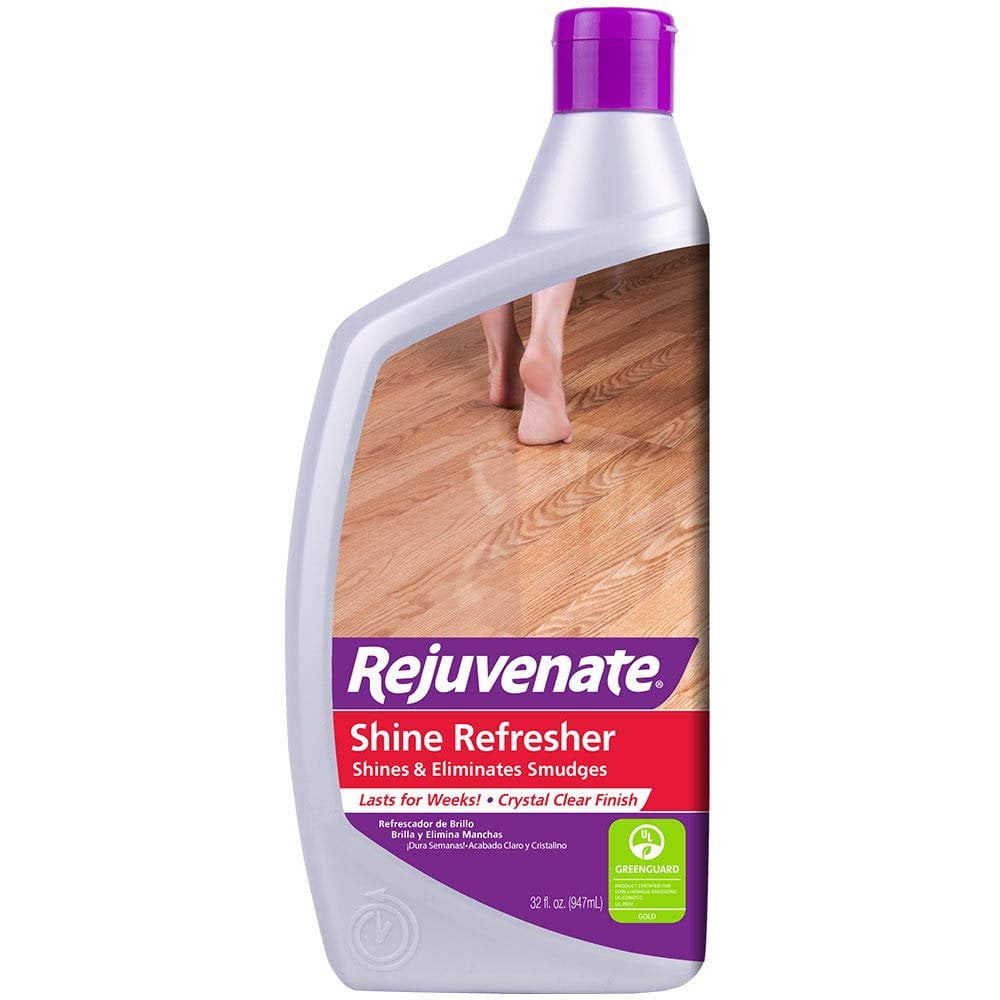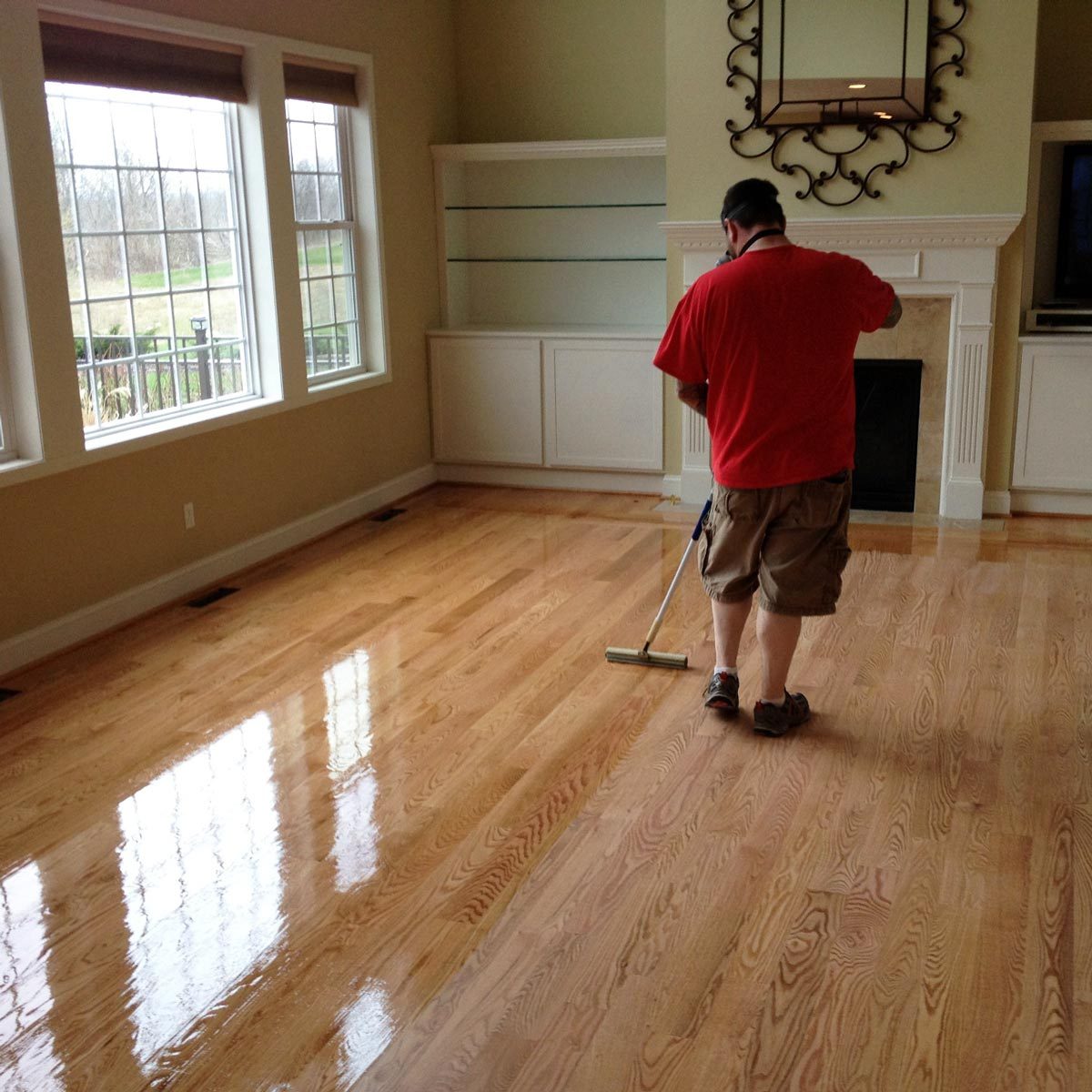Why Hardwood Floors Require Specialized Cleaning for Scratches
Hardwood floors add warmth, elegance, and value to any home, but they are not immune to scratches. Unlike other flooring materials, such as tile or laminate, hardwood requires specialized care to maintain its beauty and longevity. Here’s why:
- Natural Vulnerability: Hardwood is a natural material susceptible to scratches from everyday wear and tear. High heels, pet claws, furniture legs, and even tiny grains of dirt can all cause scratches over time.
- Surface Sensitivity: Hardwood floors have a protective finish, but it’s not invincible. Scratches can penetrate this finish and expose the wood beneath, making it vulnerable to further damage like discoloration or warping.
- Aesthetic Impact: Scratches on hardwood floors not only diminish their visual appeal but also affect the overall ambiance of a room. They can create an aged or worn-out look, detracting from the pristine appearance of your home.
- Resale Value: Maintaining the quality of hardwood floors is essential for preserving the resale value of your home. Potential buyers often prioritize properties with well-maintained hardwood floors, so addressing scratches promptly is crucial.
- Prevention of Further Damage: Ignoring scratches can lead to more significant issues down the road. Moisture, spills, and foot traffic can exacerbate scratches, leading to costly repairs or even the need for floor replacement.

Common Scratch Culprits
Hardwood floors may seem sturdy, but they are susceptible to damage from various elements commonly found in homes. Understanding these culprits can help you take proactive measures to protect your floors:
Furniture: Heavy furniture, if not properly padded, can leave scratches and indentations on hardwood floors. Dragging furniture across the floor or dropping it can cause significant damage over time.
Pet Claws: Pets, especially those with long or sharp claws, can scratch hardwood floors when they walk or play. Regularly trimming your pet’s nails and using protective pads under their paws can help prevent scratches.
Grit and Dirt: Dirt, sand, and small debris tracked into the house on shoes can act like sandpaper on hardwood floors, causing scratches with every step. Placing mats at entryways and regularly sweeping or vacuuming can minimize this risk.
High Heels: The sharp, narrow heel of high-heeled shoes can leave deep scratches on hardwood floors, particularly if worn regularly or in high-traffic areas. Encouraging guests to remove their shoes upon entering can mitigate this damage.
Moisture: Excess moisture from spills or leaks can seep into hardwood floors, causing them to warp, swell, or develop unsightly stains. Promptly wiping up spills and maintaining proper humidity levels can help prevent moisture-related damage.
Improper Cleaning Products: Using harsh chemicals or abrasive cleaning tools can strip away the protective finish of hardwood floors, leaving them vulnerable to scratches and other damage. Always use cleaners specifically formulated for hardwood floors and follow manufacturer recommendations.
Hardwood Scratches: How They Form and Spread
Understanding how scratches form and spread on hardwood floors can help you take proactive measures to prevent and address them effectively:
Surface Abrasion: Surface scratches typically occur from everyday wear and tear, such as foot traffic, furniture movement, and pet activity. Over time, these minor scratches can accumulate, creating a dull, worn appearance.
Deep Gouges: Deep scratches or gouges often result from more significant impacts, such as dropping heavy objects or dragging sharp items across the floor. These types of scratches can penetrate the protective finish and expose the underlying wood, requiring more extensive repair.
Scratch Propagation: Once a scratch forms on a hardwood floor, it can worsen over time if left unaddressed. Foot traffic, furniture movement, and cleaning methods can all contribute to the spread of scratches, leading to further damage and deterioration.
Wood Species: Some hardwood species are more resistant to scratches than others due to their hardness and density. For example, oak and maple are known for their durability and ability to withstand wear and tear, while softer woods like pine may be more prone to scratches.
Protective Measures: Applying a protective coating, such as polyurethane or wax, can help prevent scratches and minimize their impact. Regularly maintaining and reapplying these coatings as needed can prolong the life of your hardwood floors and keep them looking their best.
Professional Repair: For deep scratches or extensive damage, it may be necessary to enlist the help of a professional hardwood floor refinisher. They can sand down the damaged area, apply a new finish, and seamlessly blend it with the surrounding floor for a flawless result.
Choosing the Right Cleaner
Selecting the right cleaner is crucial for effectively removing scratches from hardwood floors without causing further damage. Here are some essential criteria to consider:
Gentle Formulation: Opt for cleaners specifically formulated for hardwood floors, as they are designed to remove dirt and grime without stripping away the protective finish. Avoid harsh chemicals and abrasive cleaners, as they can exacerbate scratches and dull the floor’s appearance.
Scratch-Removal Properties: Look for cleaners that contain ingredients specifically designed to minimize the appearance of scratches and restore the surface of the wood. These may include polymers or oils that fill in the scratch and provide a protective layer over the damaged area.
Compatibility: Ensure the cleaner is compatible with the type of finish on your hardwood floors, whether it’s polyurethane, wax, or oil-based. Using the wrong cleaner can damage the finish and potentially void any warranties on your flooring.
Ease of Use: Choose a cleaner that is easy to apply and requires minimal effort to achieve optimal results. Consider whether it requires dilution, spraying, or simply wiping onto the surface, and select the option that best fits your preferences and lifestyle.
Safety: Prioritize cleaners that are safe for both the environment and your family’s health. Look for products labeled as non-toxic, biodegradable, and free from harmful chemicals like phthalates and VOCs.
Customer Reviews: Researching customer reviews and testimonials can provide valuable insight into the effectiveness of a cleaner for scratch removal. Look for products with positive feedback and high ratings from users who have similar hardwood flooring and scratch concerns.
DIY vs. Commercial Solutions
When it comes to addressing hardwood floor scratches, you have two main options: DIY solutions or commercial products. Each approach has its pros and cons, which are important to consider before deciding which route to take:
DIY Solutions:
Pros:
- Cost-effective: DIY solutions often use household ingredients like vinegar, olive oil, or lemon juice, which are readily available and affordable.
- Convenience: DIY solutions can be made with items you likely already have at home, eliminating the need to purchase additional products. – Customization: DIY recipes can be tailored to your specific needs and preferences, allowing you to adjust the ingredients and concentrations as desired.
Cons:
- Effectiveness: DIY solutions may not be as effective at removing deep scratches or restoring the appearance of hardwood floors compared to commercial products.
- Trial and error: Finding the right DIY recipe for your particular scratch may require some experimentation and may not always yield satisfactory results.
- Time-consuming: Mixing and testing different DIY solutions can be time-consuming, especially if you’re dealing with multiple scratches or a large area of flooring.
Commercial Products:
Pros:
- Specialized Formulation: Commercial products are specifically formulated to address hardwood floor scratches, often containing ingredients that penetrate the wood to minimize the appearance of scratches and restore the surface.
- Consistency: Commercial products undergo rigorous testing and quality control measures to ensure consistent results, eliminating the guesswork associated with DIY solutions.
- Convenience: Commercial products are typically easy to use, requiring minimal preparation and application for effective scratch removal.
Cons:
- Cost: Commercial products may be more expensive than DIY solutions, especially if you have a large area of flooring to treat or multiple scratches to address.
- Chemicals: Some commercial products may contain harsh chemicals or solvents that can be harmful to the environment or your health if not used properly.
- Limited Availability: Depending on your location, certain commercial products may not be readily available, requiring you to order them online or visit specialty stores.
Maintaining Scratch-Free Hardwood Floors
Prevention is key when it comes to maintaining scratch-free hardwood floors. Follow these best practices to keep your floors looking their best for years to come:
Use Furniture Pads: Place felt or rubber pads under the legs of furniture to prevent scratches and indentations when moving or rearranging items. Check and replace pads regularly to ensure they remain intact and effective.
Keep Pets’ Nails Trimmed: Regularly trim your pets’ nails to prevent them from scratching the hardwood floors when walking or playing. Additionally, consider placing rugs or mats in areas where pets spend a lot of time to provide a protective barrier.
Implement a No-Shoes Policy: Encourage family members and guests to remove their shoes upon entering the house to minimize the amount of dirt, grit, and moisture tracked onto the hardwood floors. Provide a designated area for shoes near the entryway for added convenience.
Sweep and Vacuum Regularly: Establish a routine cleaning schedule to remove dirt, dust, and debris from the surface of the hardwood floors. Use a soft-bristled broom or a vacuum cleaner with a hardwood floor attachment to avoid scratching the surface.
Clean Spills Promptly: Accidents happen, but prompt action can prevent spills from seeping into the wood and causing damage. Use a soft, absorbent cloth to blot up spills immediately, then clean the area with a mild hardwood floor cleaner and dry thoroughly.
Schedule Professional Maintenance: Periodically schedule professional maintenance for your hardwood floors, including deep cleaning, resealing, and refinishing as needed. A professional can assess the condition of your floors and recommend appropriate treatments to keep them in top condition.
Essential Tips & Tricks for Your Hardwood Floors
Rejuvenate All Floors Restorer and Polish Fills in Scratches Protects
Rejuvenate Shine Refresher Polish Removes Scratches Wood Cleaner, 32 Fluid Ounce
Rejuvenate All Floors Restorer and Polish Fills in Scratches Protects u0026 Restores Shine No Sanding Required
Tips for Wood Floor Scratch Repair
Related Posts:

